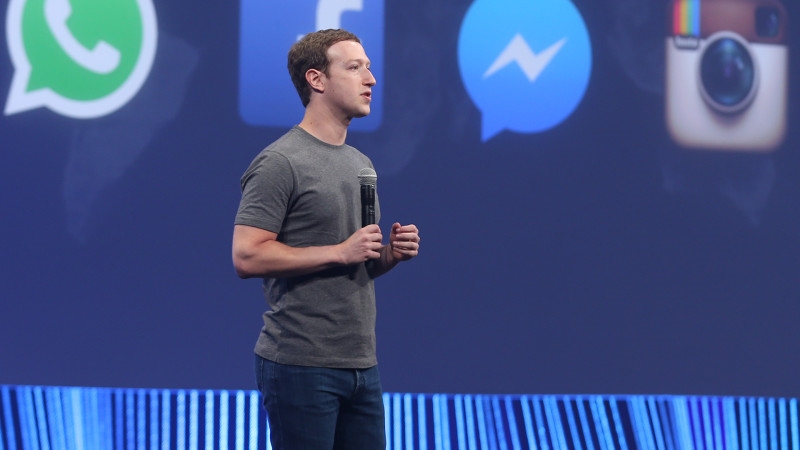NYTimes Report: Facebook plans to integrate WhatsApp, Instagram, Facebook Messenger
CEO Mark Zuckerberg’s messaging unification plan could have significant implications for advertisers.

Facebook CEO Mark Zuckerberg is making it a priority this year to integrate WhatsApp, Instagram and Facebook Messenger, according to a New York Times report published on Friday. Sources told the New York Times that Facebook wants to, “Build the best messaging experiences we can; and people want messaging to be fast, simple, reliable and private.”
The Plan. According to the New York Times’ sources (described as four unidentified people involved in the effort to integrate the platforms), Facebook is still in the early stages of the integration project, but plans to complete it by the end of 2019 or early next year.
The plan is to keep the apps as stand-alone networks, but have them contained on a unified underlying message infrastructure. The goal is to allow people who may use one platform to send messages to someone on another platform. For example, if I have an Instagram account, but not a WhatsApp account, I would eventually be able to send someone a WhatsApp message via my Instagram account.
While there are many questions around how this would work and the impact it may have on users, the possibility of consolidating the messaging structure underneath WhatsApp, Instagram and Facebook Messenger could have major implications for brands and advertisers.
Potential Concerns. For a company that has taken as much heat as Facebook in terms of how it manages user data, Zuckerberg’s plan to integrate the three apps looks overly problematic at first glance. Facebook told the New York Times it is, “…working on making more of our messaging products end-to-end encrypted and considering ways to make it easier to reach friends and family across networks.” (Right now, of the three apps, only WhatsApp defaults to end-to-end encryption.)
The amount of data — and ad-targeting signals — that could be generated from three separate apps sharing the same messaging infrastructure is astronomical when considering the combined user numbers for Facebook Messenger, Instagram and WhatsApp. But the concerns over such a move run the gamut from data-privacy issues to regulatory scrutiny over so much information being available and collected by one company. There is also the issue of users not being comfortable with their data, even if it’s only a mobile phone number, being made available to a platform they haven’t signed up to use.
Why marketers should care. Facebook has been under fire for some time now over its mishandling of user data, but advertisers have continued to reap the rewards of its ad targeting capabilities, which rely on the amount of user data Facebook collects. By joining its three separate properties — WhatsApp, Instagram and Facebook Messenger — Facebook advertisers would gain a competitive edge, and the likelihood of increased user engagement across Facebook’s messaging ecosystem.
There are also the ad-targeting implications for advertisers because a unified messaging infrastructure would make it potentially easier for brands to communicate with their customers no matter which Facebook platform they’re using. From a marketers viewpoint, integrating the three separate apps, even if only on the most basic level, could significantly benefit a brand’s Facebook ad strategy and budget.
Marketing Land – Internet Marketing News, Strategies & Tips
(15)



